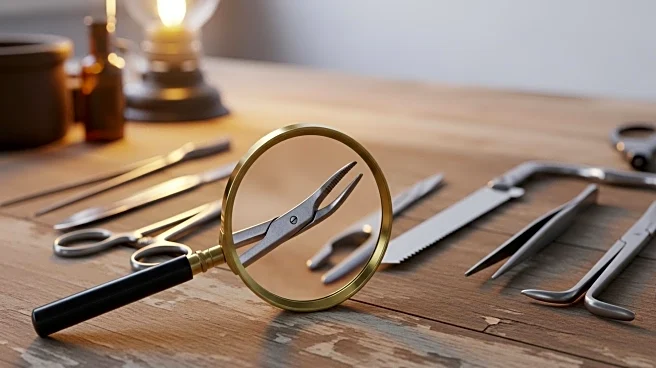What is the story about?
What's Happening?
NPR's Short Wave podcast delves into the history of rhinoplasty, revealing that the reconstructive technique has been known for over 2500 years. The episode discusses various historical motivations for mastering nose reconstruction, including adultery, duels, and syphilis. Host Regina G. Barber interviews bioengineer and Princeton University professor Daniel Cohen to explore how the art of rhinoplasty was lost and rediscovered throughout history. The podcast provides insights into the evolution of facial plastic surgery and its cultural significance.
Why It's Important?
Understanding the historical context of rhinoplasty offers insights into the development of medical practices and societal attitudes towards physical appearance. The podcast highlights the intersection of science, culture, and medicine, demonstrating how reconstructive techniques have evolved over time. It also sheds light on the motivations behind surgical advancements, reflecting broader societal values and challenges. This exploration contributes to the appreciation of medical history and the ongoing evolution of surgical practices.
What's Next?
The podcast may inspire further research into the history of other medical procedures and their cultural implications. It could lead to increased interest in the historical development of plastic surgery and its impact on modern medical practices. The episode may also encourage listeners to consider the ethical dimensions of cosmetic surgery and the societal pressures that drive individuals to alter their appearance.
Beyond the Headlines
The exploration of rhinoplasty's history raises questions about the cultural and ethical dimensions of cosmetic surgery. It highlights the societal pressures related to physical appearance and the historical context of these practices. The podcast encourages reflection on the balance between medical advancements and cultural values, prompting discussions on the ethical considerations of altering one's appearance.
















